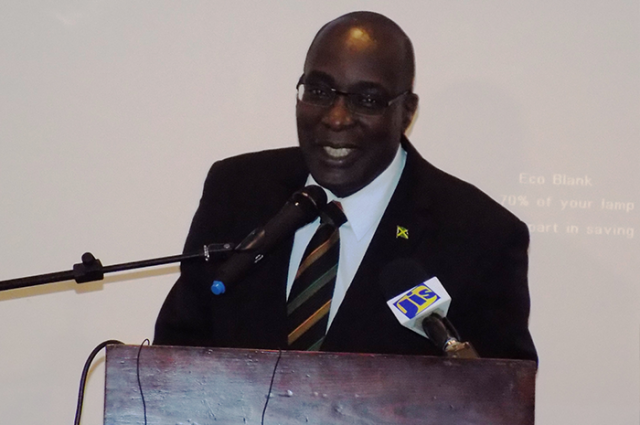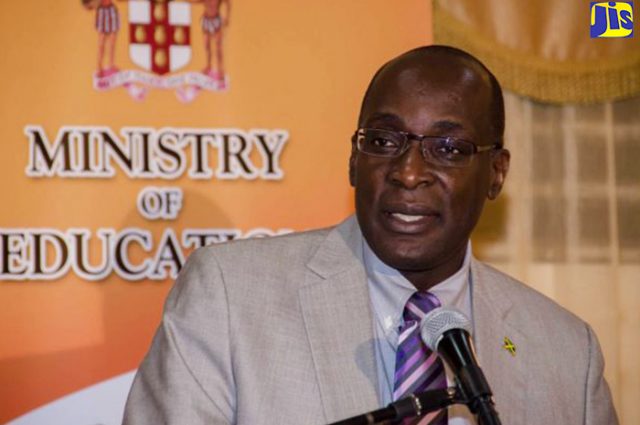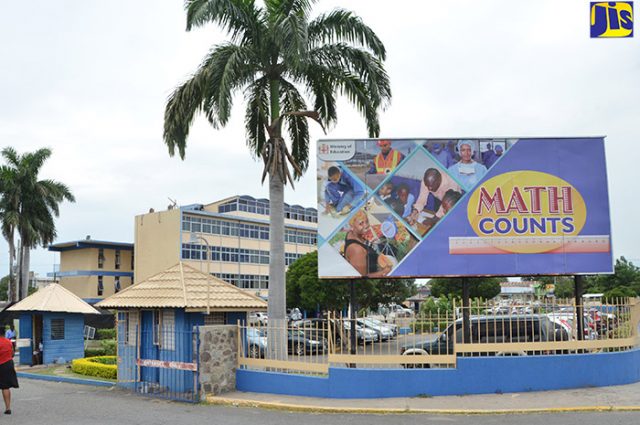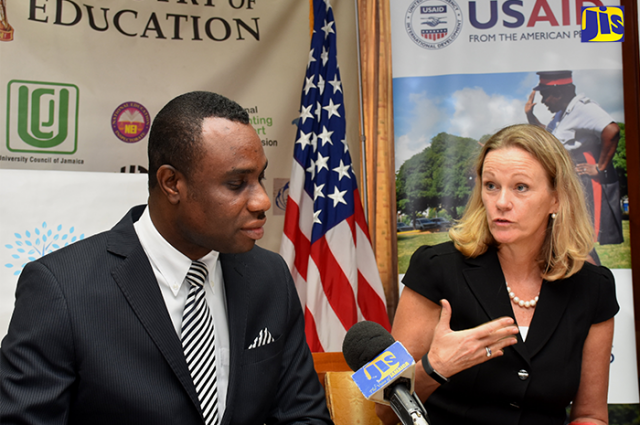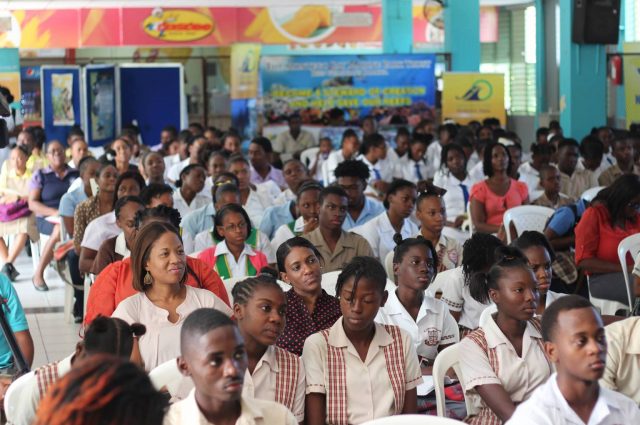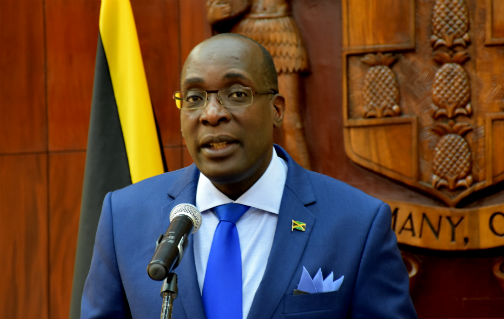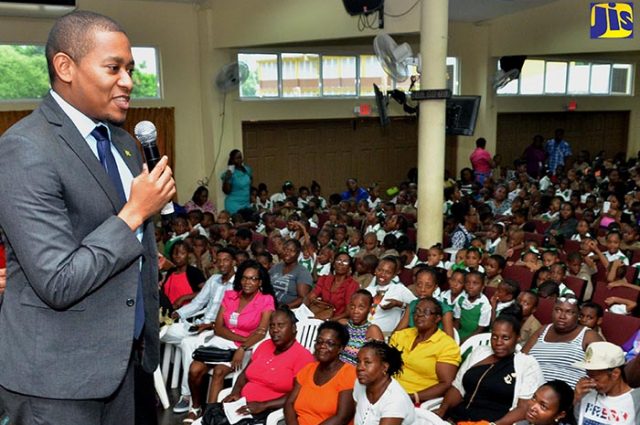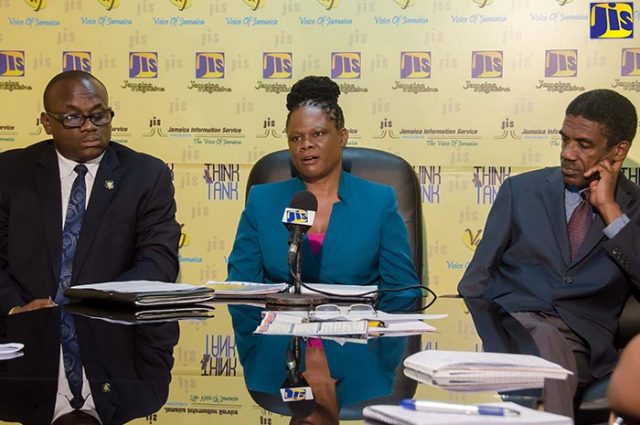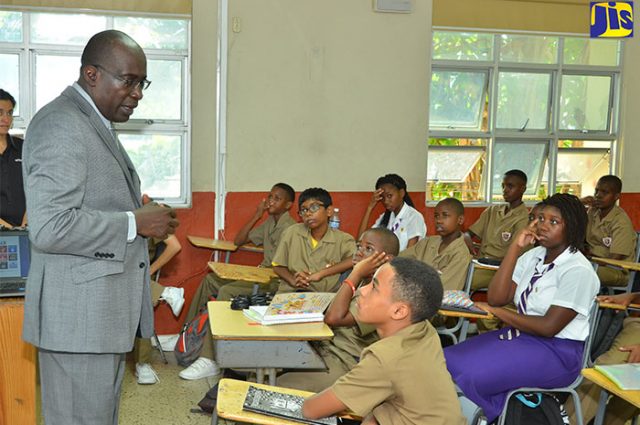JIS: With a student population of between 10,000 and 12,000 in any given year, Jamaica’s community colleges have become a game changer in tertiary landscape.
In 1974, they were established to accommodate students pursuing sixth form studies.
Forty-three years later, the system has transformed into one of the most affordable, flexible and accessible means to tertiary education, offering to Jamaicans a variety of programmes ranging from continuing education, short courses, postgraduate diplomas, Associate and Bachelor’s degree.
Executive Director of the Council of Community Colleges of Jamaica (CCCJ), Dr. Donna Powell Wilson, tells JIS News that the programmes offered by the community colleges are some of the most affordable in the country. “We are not cheap but very affordable.
The cost to pursue a two-year Associate Degree is close to what a student will pay for one year of studies at a local university,” she says. She points out that community colleges have forged partnerships with local, regional and international institutions, to offer programmes to meet the educational needs of Jamaicans.
Memorandums of Understanding (MOUs) have been established with institutions such as Jamaica Theological Seminary, University of Technology, University of the West Indies and Monroe College in the United States.
Dr. Powell Wilson says that under the MOU with Monroe College, credits can be transferred to pursue a Bachelor’s degree, which means community colleges graduates will not have to redo the programmes, when they enrol in these institutions.
“We form associations with other institutions, so that our students are not at a disadvantage if they want to further their studies,” she says.
The local community colleges have also extended their offerings through franchising regionally to Anguilla, the Turks and Caicos and the Bahamas Baptist Community College.
Dr. Powell Wilson points out that in response to the emerging needs of the local economy, the CCCJ has just completed the development of a logistics supply chain management programme in collaboration with the Niagara College and the Marine University of Newfoundland, Canada.
This, she says, is sponsored by the CARICOM Education for Employment Programme.
She adds that the CCCJ is working on developing a partnership with Hocking College in the United States so as to offer different types of programmes to students.
Meanwhile, Principal of Knox Community College and President of the Association of Principals and Vice Principals of Community Colleges, Dr. Gordon Cowans, says that one of the challenges is informing persons that tertiary education is accessible to every Jamaican.
“Tertiary education is in the reach of all Jamaicans irrespective of your age or academic performance. We have coverage for the island, we have programmes to meet each and every Jamaican who want to better their professional or academic experience. The CCCJ is responding to today’s challenges creating tomorrow’s opportunities,” he says.
Meanwhile, Principal of Excelsior Community College in Kingston and Chair of the Curriculum Development Committee in the CCCJ, Philmore McCarthy, tells JIS News that in an effort to strategically coordinate the work of the community colleges, the CCCJ was established in 2001 through an Act in Parliament.
Mr. McCarthy says that the main functions of the Council are to draft regulations to govern operations; standardise the offerings; and ensure that the community colleges maintain quality standards.
“They also work with the University Council of Jamaica (UCJ) and use their standards to develop programme, hence majority of our programmes are accredited,” he points out.
The CCCJ members are made up of representatives from community colleges, other local tertiary institutions, the private sector and HEART Trust/NTA.
The community college system boasts a two plus two model and according to Mr. McCarthy, under this model, a student has the opportunity for the first two years to pursue an Associate Degree and the other two years to gain a Bachelor’s Degree.
“We are geared towards preparing our students for the workplace and for industries, as well as persons who want to go on to further studies. You find that a person will come in and do two years, go back to work and then they would come back to complete another two years for their Bachelor’s Degree,” he explains . Students have access to programmes in areas such as engineering, technology, business, hospitality and tourism management, agriculture, education (trainers of primary school teachers), humanities – criminal justice, social work, logistics, business process outsourcing and management.
To pursue an Associate Degree, individuals are required to have five Caribbean Secondary Education Certificate (CSEC) subjects, inclusive of Mathematics and English or its equivalent. For a Bachelor’s Degree, an Associate Degree from an accredited programme is required.
There are eight community colleges in Jamaica in 25 different locations across the island. They are the Bethlehem Moravian College, Moneague College, the College of Agriculture, Science and Education (CASE), Excelsior Community College, Montego Bay Community College, Brown’s Town Community College, Portmore Community College and Knox Community College.
CAPTION: Executive Director of the Council of Community Colleges of Jamaica, Dr. Donna Powell Wilson (centre), addresses Jamaica Information Service (JIS) ‘Think Tank’ recently. Observing from left are: Principal of Excelsior Community College in Kingston and Chair of the Curriculum Development Committee in the Council of Community Colleges of Jamaica (CCCJ), Philmore McCarthy, and Principal of Knox Community College and President of the Association of Principals and Vice Principals of Community Colleges, Dr. Gordon Cowans.


